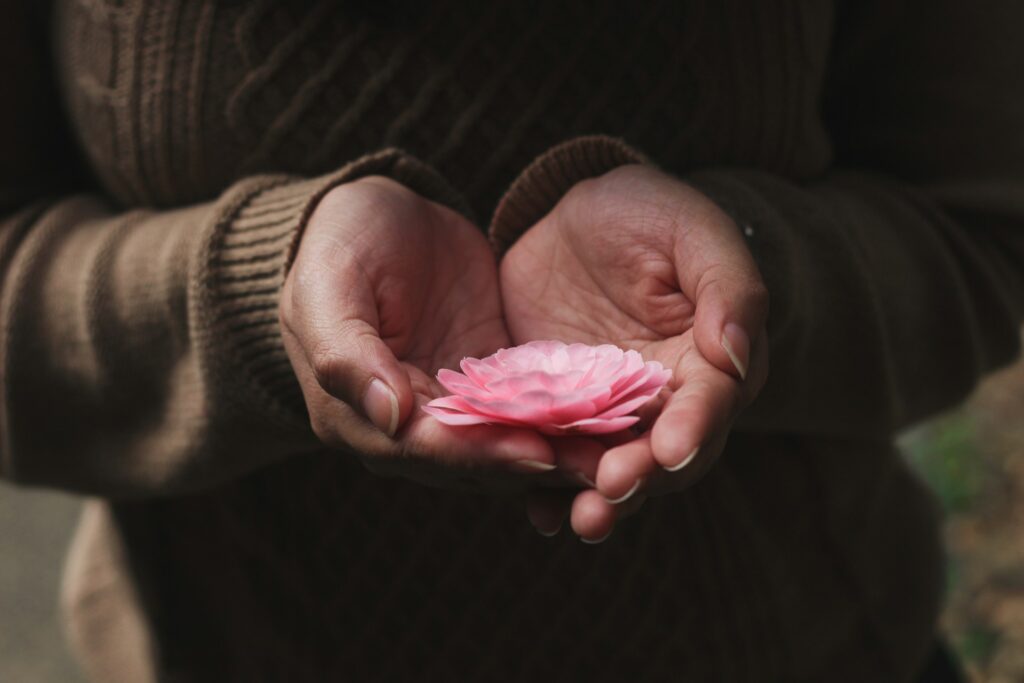Growing up with limited financial resources often creates long-lasting effects. But when that upbringing also includes warmth, love, and joy, it shapes a unique kind of adult. People who had very little money but still felt deeply content as children tend to carry a distinct set of habits into adulthood. These habits are not rooted in wealth, but in perspective, gratitude, and resilience. They reflect a deep understanding that joy is not purchased but created, often in the simplest ways. Below are seven common traits found in people who experienced a happy yet financially modest childhood.
1. They Know How to Create Joy Without Spending Much

Adults who grew up happy but poor understand that fun does not have to be expensive. They learned to entertain themselves with creativity instead of toys or gadgets. Whether it was building forts out of blankets, turning chores into games, or finding joy in shared moments, these early experiences taught them to value activities that do not cost a thing. As adults, they often carry this mindset into daily life. They host potlucks instead of dining out, enjoy nature instead of pricey getaways, and find delight in storytelling, music, or dance. Their version of fun is often homemade, deeply fulfilling, and rarely tied to material wealth.
2. They Are Resourceful and Good at Making Do

People who grew up in happy homes with limited money usually became very good at making the most of what they had. This might mean repurposing old items, fixing things instead of replacing them, or finding clever alternatives when funds are tight. As adults, this resourcefulness turns into a valuable skill. They are often the ones who can patch a broken item, stretch groceries further, or create something beautiful out of scraps. This habit of making do does not stem from lack, but from a deep sense of capability and pride in their ability to figure things out.
3. They Appreciate Small Luxuries Others Take for Granted

Adults who had little money growing up often see small indulgences differently. Something as simple as ordering coffee at a café or buying new socks feels like a treat. They are less likely to take everyday comforts for granted and more likely to feel gratitude for them. Their appreciation runs deeper because they remember a time when these small pleasures were rare. This gives them a built-in gratitude that helps buffer against dissatisfaction. Even during hard times, they are more likely to find joy in what they have, rather than focus on what is missing.
4. They Tend to Value People Over Possessions

When you grow up in a home where relationships matter more than riches, you learn that people bring more happiness than things. These adults often form strong social bonds and prioritize connection over status. They invest time in friends and family rather than chasing material markers of success. Their memories are often built around shared meals, laughter, and traditions instead of toys or vacations. As adults, they may not care about having the latest car or designer clothes, but they will show up for their loved ones every time.
5. They Are Less Impressed by Status Symbols

Adults who had happy childhoods without financial abundance tend to view status symbols differently. They may not see luxury goods, big houses, or flashy lifestyles as impressive. Instead, they often value authenticity, hard work, and kindness. Their experiences taught them that wealth does not always equal happiness and that appearances can be misleading. This makes them less likely to compare themselves to others or feel pressured to keep up with trends. They are often more grounded and confident in their values, because their self-worth is not tied to material success.
6. They Are More Likely to Be Generous With What They Have

Many people assume that growing up poor makes someone tight with money. But for those who experienced warmth and generosity even during tough times, the opposite is often true. These adults understand the importance of helping others because they remember how much a little support can mean. They are often quick to share meals, offer time, or donate to causes they believe in. Their generosity does not come from surplus but from a deep belief that giving, even in small amounts, strengthens community and builds meaningful connections.
7. They Have a Deep Sense of Gratitude and Resilience

Growing up without financial security can create stress, but when paired with a loving environment, it can also build inner strength. These adults tend to be more adaptable during difficult times because they have already learned how to navigate uncertainty. They are not easily shaken by financial setbacks, and they know how to recover from disappointments. Their gratitude acts as a buffer against bitterness, while their resilience helps them keep moving forward. They often reflect on their childhood not with resentment, but with appreciation for the emotional richness it gave them.
A Wealth of Wisdom That Money Cannot Buy

People who were raised with very little money but plenty of joy often become adults who shine in quiet, powerful ways. Their habits reflect a deep-rooted understanding that happiness comes from love, connection, and inner strength. They are often more grounded, less materialistic, and more appreciative of life’s simple pleasures. In a world that constantly equates money with success, these individuals carry a wisdom that reminds us that joy is not bought, it is built. And often, it is built best with very little.
Read More: People who didn’t receive enough emotional support as a child display these 12 traits as adults
Disclaimer: This article was created with AI assistance and edited by a human for accuracy and clarity.

